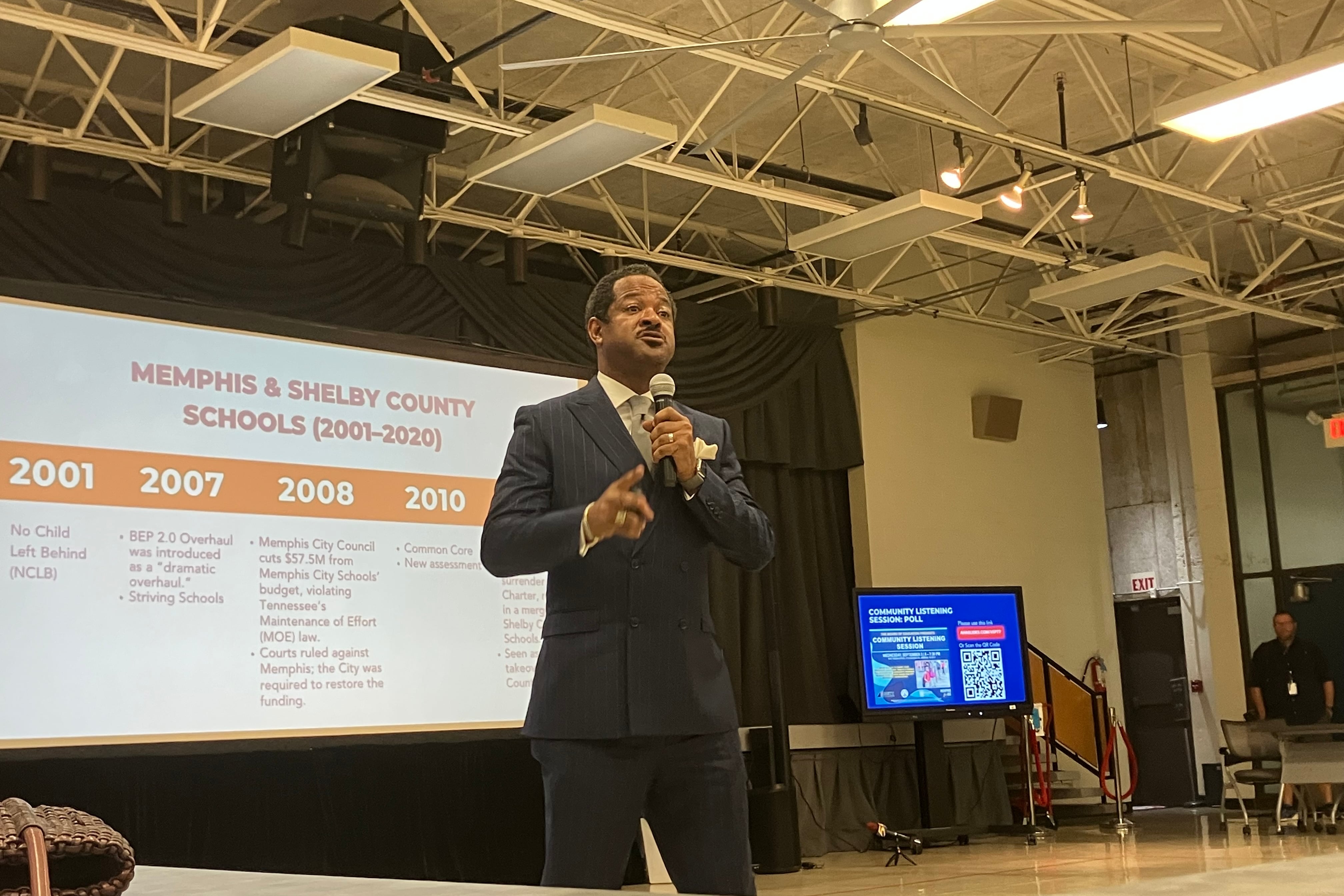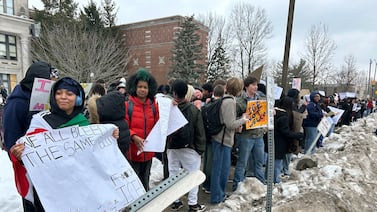Sign up for Chalkbeat Tennessee’s free newsletter to keep up with statewide education policy and Memphis-Shelby County Schools.
Since publication of this story, district leadership has recommended that four schools be closed and a fifth be transferred to another district. Catch up with the latest news here.
Memphis-Shelby County Schools leaders could present their recommendations for the first round of school closures as early as next Tuesday.
MSCS board member Natalie McKinney said administrators will provide a list of proposed 2025-2026 closings, consolidations, and repurposing projects at either the Sept. 23 or Sept. 30 board meeting.
It’s unclear how many schools will be affected by the proposal, when the board will vote on it, or when the schools will close if the board approves the closures.
There are 10 MSCS school buildings that should be closed or rebuilt in the next decade due to expensive repair needs, according to a district facilities review last year. Both building quality and enrollment are expected to play a key role in closure decisions.
McKinney leads the district’s new facilities committee, a group of local business and education professionals formed this summer to weigh in on how MSCS should handle a growing building maintenance crisis. In the committee’s first meeting in August, students said deteriorating building conditions are hindering their ability to learn.
But McKinney also said some action is required now.
“We need to do the right thing by our students,” she said.
According to a facilities report from independent firm Buenas Veritas, 10 MSCS school buildings will reach the end of their “useful or serviceable life” by 2035. That designation comes from the Facility Condition Index, which measures the cost of fixing and maintaining a building versus replacing it entirely.
Sable Otey, who co-leads the facilities committee, said she understands people will be upset if their schools are slated to close. But her priority is getting students into “safe, operable and clean environments.”
Sometimes that means closing a building that costs millions of dollars each year to maintain for only 150 children, she said, and combining the staff and students with another school.
“It takes a lot of money to run a school building,” she said. When schools are combined, “we’re now fully staffed, or overstaffed in some cases, and we’re able to allocate those resources a little bit better.”
According to state education department data, eight MSCS schools enrolled fewer than 150 students in 2023-2024:
- Memphis Business Academy Hickory Hill Middle School (56 students).
- Arrow Academy of Excellence (83).
- Ida B. Wells Academy (98).
- Hollis F. Price Middle College (105).
- Medical District High School (111).
- Shrine School (115).
- Veritas College Preparatory (135).
- Memphis Business Academy Hickory Hill Elementary School (142).
Facilities committee members will likely present their own recommendations on future closures to the school board and district leaders in November. For the next two months, they’re splitting into work groups based on different topics, including data strategy, community engagement, funding and partnerships, and implementation.
Charlotte Fields, president of the Memphis-Shelby County Education Association, said her focus as a member of the data team is on student enrollment, and whether buildings are under capacity.
“How can we better use the building once it has a small number of students and is not being utilized to its full potential?” she said.
McKinney said building utilization is one of many factors that committee members are considering, including residential development plans and transportation.
“What do we do with those buildings, and then how are we being strategic about what we close or consolidate and what we demolish?” she said.
Fields said she hopes to convert underenrolled buildings into trade or contract schools with community partners. She pointed to the building that used to house Humes Middle School, which closed in 2024, and is now under consideration for a new arts-focused school purchased by local nonprofit New Ballet.
Board members are expected to vote on the sale of that building during the Sept. 30 meeting as well.
Bri Hatch covers Memphis-Shelby County Schools for Chalkbeat Tennessee. Reach Bri at bhatch@chalkbeat.org.






